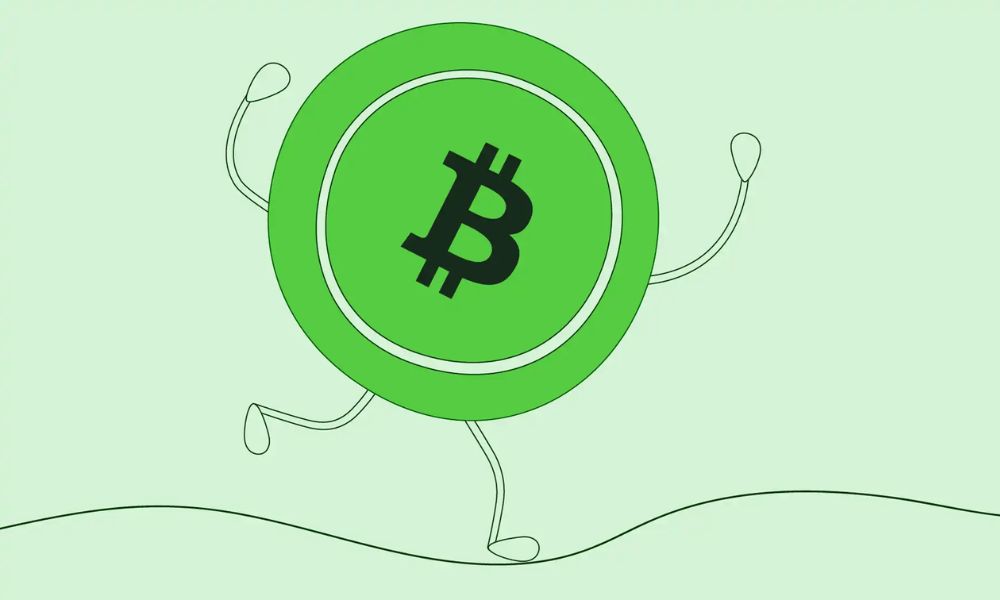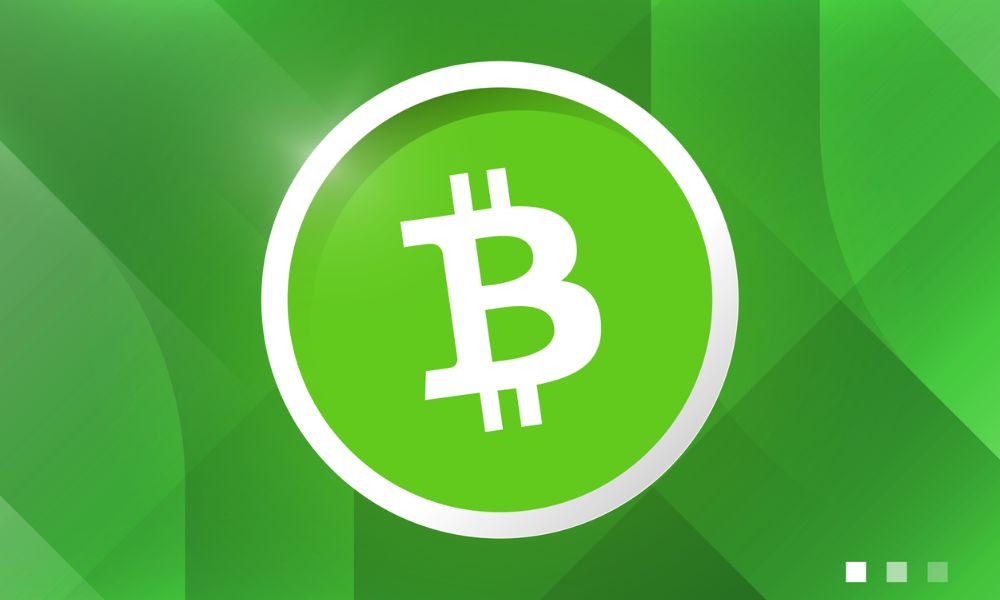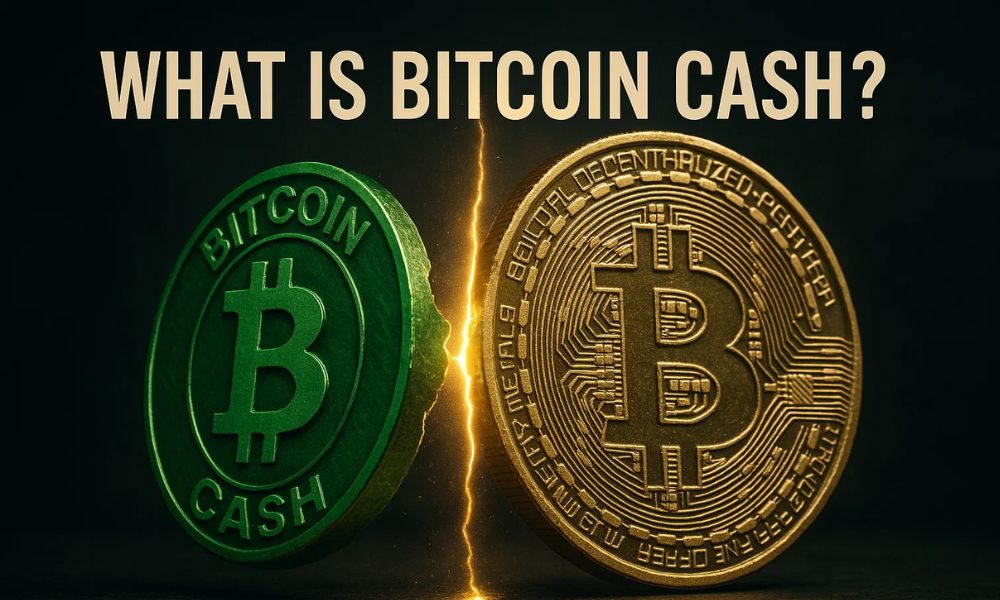In the world of cryptocurrency, no relationship is more complex and controversial than the one between Bitcoin (BTC) and Bitcoin Cash (BCH). Born from one of the most contentious hard forks in history in 2017, BCH was created by a group who believed that Bitcoin had deviated from its original vision. They wanted a version of Bitcoin focused on being a fast and cheap medium of exchange. So, what is Bitcoin Cash? Coin60s will help you explore what Bitcoin Cash is and how it works.
What is Bitcoin Cash?
Bitcoin Cash (BCH) is a peer-to-peer digital currency, born in August 2017 from a hard fork of the Bitcoin blockchain.

The reason for this split stemmed from a long-standing debate within the Bitcoin community about how to solve the scalability problem.
- The Bitcoin (BTC) Side: Chose to keep the block size small (around 1MB) and focus on off-chain or Layer-2 scaling solutions like the Lightning Network. This approach prioritizes the decentralization and security of the base layer.
- The Bitcoin Cash (BCH) Side: Argued that the only way for Bitcoin to become a global cash system was to increase the block size directly on the main chain (on-chain). They believed this would allow the network to process more transactions, keep fees consistently low, and be suitable for everyday payments.
Ultimately, when a consensus could not be reached, a segment of the community split off and created Bitcoin Cash, with an initial block size of 8MB (which has now been increased to 32MB).
Technology and Operating Model
Operating Model: Very clear and simple—a decentralized payment network optimized to be effective “electronic cash.”

Core Technology: BCH shares almost the entire technological foundation of Bitcoin: the Proof-of-Work (PoW) consensus mechanism, the SHA-256 algorithm, and the UTXO model. The single most important difference is the much larger block size.
Competitive Advantage: Compared to Bitcoin’s (BTC) base layer, BCH’s advantages are:
- Extremely low on-chain transaction fees, often just a fraction of a cent.
- Faster transaction confirmation experience, as it doesn’t get congested and can fit more transactions into a single block.
Read more: What is Internet Computer? Updated ICP review you shouldn’t miss in 2025
BCH’s Tokenomics
BCH’s tokenomics almost completely replicate Bitcoin’s economic model, which is considered one of the best “sound money” models.
- Utility: BCH’s primary role is as a medium of exchange. It is accepted by a significant number of retailers and payment gateways worldwide, especially by those who support the low-transaction-fee philosophy.
- Halving Mechanism: Exactly like Bitcoin, BCH undergoes a “halving” event approximately every 4 years, which cuts the reward for miners in half. The most recent halving event took place in April 2024.
- Maximum Supply: BCH has a fixed total supply of 21 million BCH.
These characteristics make BCH a deflationary asset over time, similar to Bitcoin.
Ecosystem and Community

- Ecosystem Growth: While not a smart contract platform like Ethereum, the BCH ecosystem has made efforts to expand its utility. The introduction of the CashTokens standard allows for the creation of tokens and simple decentralized applications (dApps) directly on-chain. However, it must be acknowledged that the dApp ecosystem on BCH remains very small and less vibrant compared to its competitors.
- Community: BCH has a community that, while smaller than Bitcoin’s, is very passionate and holds a strong belief in the “big block” philosophy. They are actively working to promote the adoption of BCH as a real-world payment method.
Founding Team
- Founder & Team: BCH does not have a single founder. It was born from a movement within the Bitcoin community. One of its most famous and influential proponents is Roger Ver, often known by the nickname “Bitcoin Jesus.” BCH’s development is carried out by multiple independent programming teams across the globe.
- Investors: Like Bitcoin, BCH is a decentralized, fair launch project with no backing from venture capital (VC) funds, which reinforces its distributed nature.
Read more: What is Litecoin? Updated LTC review you shouldn’t miss in 2025
What are the Pros and Cons of Bitcoin Cash (BCH)?
Advantages of Bitcoin Cash (BCH)
- Extremely Low On-Chain Transaction Fees: This is the biggest advantage and the primary reason for BCH’s existence. Thanks to a much larger block size than Bitcoin, the BCH network can process more transactions in each block. This prevents congestion and keeps transaction fees at a very low level, often just a fraction of a cent, making it highly suitable for small, everyday transactions.
- Faster Transaction Confirmation Experience: Because it doesn’t get congested, transactions on the BCH network are almost always included in the next block (approximately every 10 minutes). This provides a faster and more reliable payment experience for users and merchants compared to Bitcoin’s base layer, where users sometimes have to wait or pay high fees during peak times.
- “Sound Money” Economic Model: BCH fully inherits Bitcoin’s economic model: a limited total supply of 21 million coins and a halving event that occurs approximately every 4 years. This creates a deflationary asset that can resist value loss due to inflation, a characteristic highly valued by many investors.
- Decentralization (in terms of Governance): Similar to Bitcoin, BCH is an open-source, fair launch project without an ICO or domination by VCs. Its development is carried out by multiple independent programming teams globally, helping it maintain decentralization in its development direction.

Limitations of Bitcoin Cash (BCH)
- Losing the “Brand War” with Bitcoin: This is its biggest limitation. Despite sharing a common origin, the market and the public have by default accepted Bitcoin (BTC) as “digital gold” and the “real” version. BCH has always had to live under the immense shadow of its older sibling, making it less attractive in terms of branding, market capitalization, and adoption by institutional investors.
- Fierce Competition in the Payments Niche: BCH’s goal of becoming “electronic cash” now faces brutal competition from countless new and more efficient solutions:
- Stablecoins (USDT, USDC): Provide the price stability that users and merchants desire.
- Faster Layer-1s (Solana, TRON): Offer near-instant transaction speeds at very low costs.
- Ethereum Layer-2s (Arbitrum, Optimism): Offer extremely cheap transactions on a secure blockchain with the largest dApp ecosystem.
- Underdeveloped Application Ecosystem: Because it is not an optimized smart contract platform like Ethereum, the ecosystem of decentralized applications (dApps) on BCH is very small and lacks vibrancy. This reduces the utility of the BCH coin beyond simple payments and makes it difficult to attract new capital and developers.
- Relative Network Security Risk: BCH uses the same mining algorithm (SHA-256) as Bitcoin but has a much lower hashrate (the total computational power of the network). In theory, this makes the BCH network more vulnerable to a 51% attack than Bitcoin. Although this risk remains low in practice, it is still a factor to consider.
Should You Invest in Bitcoin Cash (BCH)?
This is a complex question, and the answer depends heavily on an individual’s investment philosophy and goals. This section provides an analytical framework, not financial advice.
Essentially, investing in Bitcoin Cash (BCH) is a bet on the philosophy that the world still needs a true “peer-to-peer electronic cash system”: fast, cheap, decentralized, and with a limited supply.
The investment thesis for BCH becomes attractive when you believe in its fundamental and long-term values. First, you believe in its “sound money” economic model, with a 21 million total supply and halving events. At the same time, you value the real-world utility of BCH as a fast and extremely low-cost payment method. Second, you prioritize governance decentralization, as BCH was a fair launch project not dominated by large investment funds.
However, investors must face very large risks and limitations. The biggest is that BCH has lost the “narrative war” to Bitcoin and faces fierce competition from countless newer payment solutions like stablecoins and Layer-2s. Furthermore, BCH’s application ecosystem is very limited, meaning it sits almost entirely outside of the high-growth potential trends like DeFi and GameFi.
In summary, BCH is a philosophical investment choice. It suits long-term investors who prioritize safety and fundamental principles, rather than those seeking breakthrough profits from new technological trends. Consider your goals carefully before making a decision.
Conclusion
In summary, Bitcoin Cash (BCH) is an important legacy of the historic debate on Bitcoin’s scalability. It represents a different path, one that prioritizes everyday transactions. Its strength lies in its solid deflationary economic model and its simplicity and reliability. However, BCH’s greatest challenge is the battle for relevance in a market that already has a plethora of faster and cheaper payment options. It remains an asset with historical value, but the road ahead is fraught with challenges.
Disclaimer: This article is for informational and analytical purposes only and should not be considered financial or investment advice. Always conduct your own research (DYOR) before making any investment decisions.

